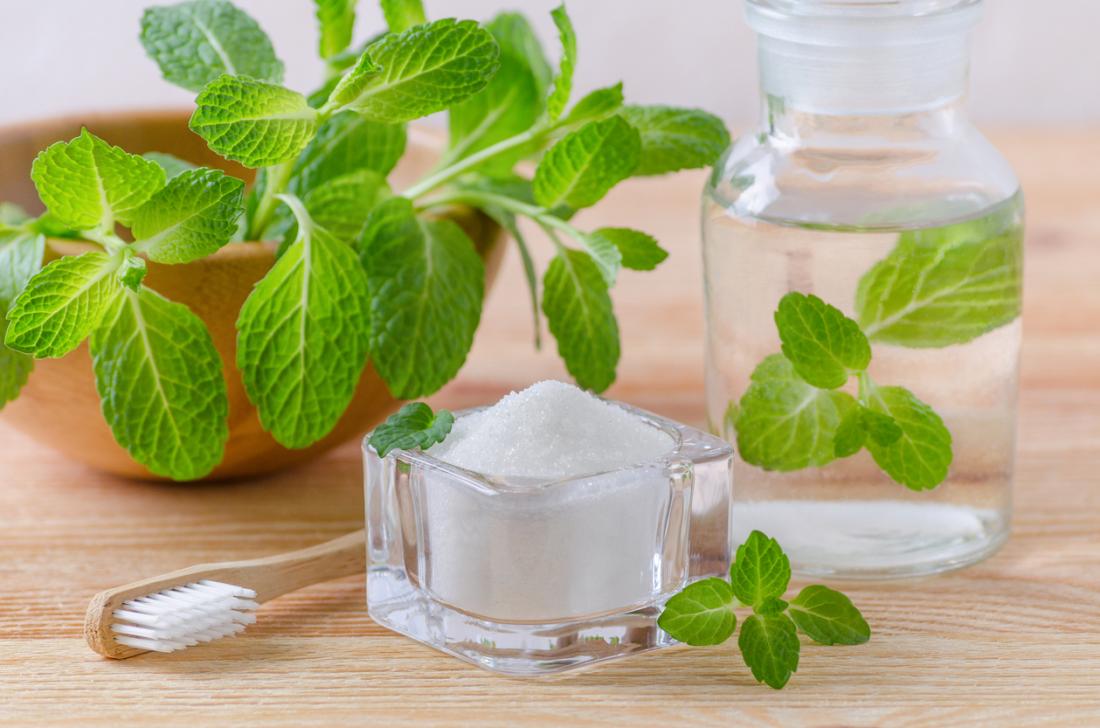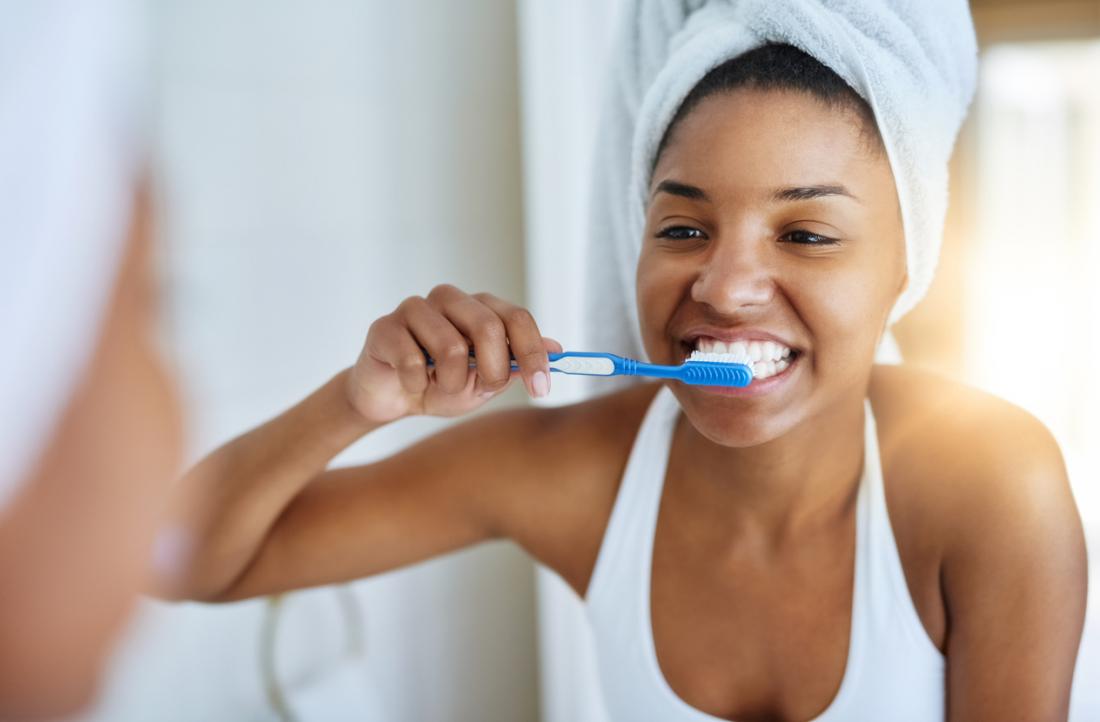Gums are the soft tissue surrounding the teeth that provide a seal around each tooth. Healthy gums are essential for protecting teeth, and itching is often a sign that bacteria have built up between teeth and gums.
Itchy gums are usually easy to treat, and good dental hygiene can prevent most problems.
In some cases, itching could be a sign of a more serious concern, such as gum disease, so a person should visit a dentist if symptoms persist.
Symptoms

If itchy gums are accompanied by consistent and unexplained bleeding, a dentist should be consulted.
Itchy gums can have a number of different causes, so other symptoms can help determine the exact problem:
- Itching that also affects the roof of the mouth may be an allergy.
- Red, irritated, or inflamed gums could point to the first stages of gum disease.
- Pain, aching, or swelling could be the result of an injury or tooth abscess.
Gums that bleed lightly for a short time is common, such as when someone first begins flossing.
However, regular bleeding may be a sign of an underlying concern a dentist should check.
Possible causes
A common cause of itchy gums is a plaque buildup on the teeth and gums. Plaque is a sticky film found on teeth, which contains bacteria that break down some of the simple sugars found in food and drink.
If plaque builds up and stays on teeth for long enough, it can begin to harden into tartar, which cannot be removed with floss or a toothbrush.
Tartar below the gum line can cause gums to become irritated and inflamed. This early stage of gum disease is called gingivitis.
A mild allergic reaction can cause an itchy mouth. If someone has hay fever, they may also suffer from oral allergy syndrome (OAS), which causes itchiness or swelling of the mouth, face, tongue, or throat after eating raw fruit or vegetables.
The teeth and gums are sensitive to hormonal changes. For women and girls experiencing puberty, pregnancy, or menopause, hormone changes may cause itchy gums or increase the risk for gum disease.
If someone has injured their teeth, gums, or mouth, they may experience itching as cuts or lesions begin to heal.
Bruxism is the medical term for teeth grinding. Grinding can cause damage to teeth and gums, including wearing away enamel or receding gums.
A dry mouth can be a common cause of itchy gums. The body should naturally produce enough saliva to keep the mouth moist, but certain medical conditions, medications, or foods may prevent this, resulting in a feeling of dryness. Drinking plenty of water throughout the day should quickly stop gums itching.
Less common causes of itchy gums include:
- teething in younger children
- teething in adults between the ages of 17 and 21 when the wisdom teeth usually come through
- canker sores, oral herpes, or viral infections that can affect the gums
- tooth abscesses
Poor dental hygiene is the underlying reason for many cases of itchy gums because the teeth and gums are not kept clean enough, and plaque builds up.
Read on to find out more about how to take care of teeth and gums, at-home remedies, and when to seek treatment.
Options for treatment and relief

Using a saltwater rinse as mouthwash may help to ease the symptoms of itchy gums.
There are a few simple things that people can do at home straight away to relieve gum itching and irritation:
- brushing teeth, flossing, and using an antibacterial mouthwash
- rinsing the mouth with a saltwater solution
- taking an over-the-counter antihistamine if itching has been caused by an allergy
A person should see their dentist if itching persists or if other symptoms are present. Controlling inflammation and infection is key to stopping gums from itching.
When to see a doctor or dentist
It is important to see a dentist if symptoms persist, as the first stage of gum disease or gingivitis can usually be controlled and treated easily. A dentist will be able to advise on changes to diet and lifestyle and provide initial care, such as professional cleaning.
A dentist or dental hygienist will need to remove any tartar, as this cannot be done at home. This process is referred to as scaling.
There is no clear test for OAS, but someone should be able to tell if they have it by taking a skin allergy test for pollen or by discussing the history of their symptoms with a doctor.
Avoiding any raw fruits or vegetables that seem to be causing the reaction, or peeling them before eating, should help.
If mouth injuries or bruxism cause itchy gums, wearing a customized mouth guard that prevents teeth grinding is likely to be the best option for preventing further damage to the teeth and gums.
Prevention

Brushing teeth twice a day using fluoride toothpaste can help to keep gums healthy, preventing itchy gums.
The most important way to prevent itchy gums, and the problems that can be associated with them, is to keep teeth and gums clean.
Good dental hygiene can prevent a range of health issues, and keeping teeth free of plaque is an easy first step to take.
The American Dental Association recommend brushing teeth for 2 minutes with fluoride toothpaste twice a day and flossing in between teeth once a day. Mouthwash may be helpful for people who often have problems with sore gums or infections.
Smoking can negatively affect oral health, including staining teeth or slowing down the healing process. Research suggests smoking may also increase the risk of gum disease, which can be signaled by itchy gums.
As a result, quitting smoking may be a good preventive step.
Outlook
Itchy gums are often a good early warning of a potential problem, such as gum disease. Hormonal changes, new medication, or an allergic reaction can cause itchy gums. As a result, the condition may be temporary or easy to treat at home.
If someone is concerned or has symptoms that last more than a few days after treatment at home, they should consult a dentist.
Teeth often get more attention than gums, but looking after gums by brushing and flossing regularly and keeping an eye on any changes or irritation, is key to good overall oral health.
Let’s block ads! (Why?)





